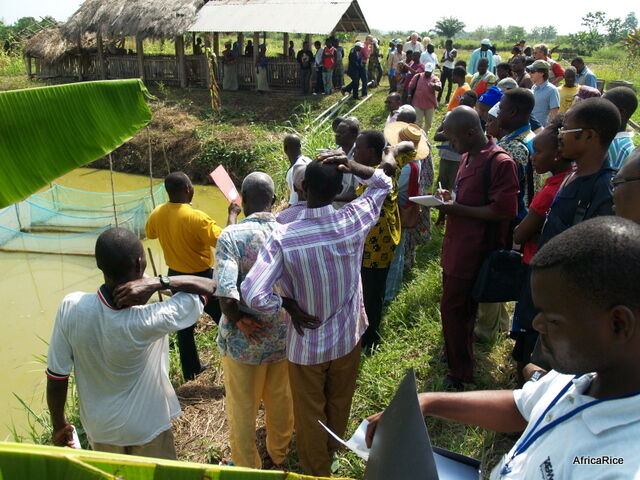- Austausch & Vernetzung
- Wissen & Lernen
- Advocacy
- Unsere Themen
Von John Reeder
As we move into the era of the Sustainable Development Goals, implementation research has a key role in managing and ending epidemics. NGOs have several important advantages which can support this critical research area: independence, understanding of local context, experience as implementers, and an often nimble response enabled by light bureaucracy and short decision chain. These factors also help build trust and community support for research, as was clearly demonstrated during the recent Ebola outbreak. Developing community-directed interventions required a close grasp of stakeholder processes, health systems dynamics and engagement with community, and this was most readily available through locally operating NGOs.

Implementation research involves increasing access to health products and strategies that are already available and have been shown to work, but remain beyond the reach of many of the people who could benefit from them. Operational research extends this reach by using an existing resource – the data routinely collected by programmes – to provide ways of improving programme operations and thereby delivering more effective, efficient and equitable care. These areas of implementation science are a major focus of TDR’s strategy, working with a wide range of stakeholders. The goal is to reduce the global burden of infectious diseases of poverty, such as malaria, tuberculosis and the group of diseases called the neglected tropical diseases.
A great example of undertaking implementation research and strengthening research capacity has been a collaboration between TDR, The TB Union and Médecins Sans Frontières (MSF), called Structured Operational Research and Training Initiative (SORT-IT). This is aimed at national public health workers (including disease control programme managers, doctors, nurses, data officers), who are trained to use their country’s own data to conduct research that can lead to local health system improvements. Participants learn the practical skills for conducting operational/implementation research and publishing the findings through three modules (developing a research protocol, data analysis and publication) supported by facilitators and mentors. The policy briefs produced by the participants, in addition to published papers, have led to an extremely high rate of uptake of evidence into policy change, and the train-the-trainers approach has allowed the scheme to expand very quickly across the globe.
Finally, but of utmost importance, is the ability of NGOs to help in making the best use of the findings of implementation research – to inform policy decisions and drive practical changes in the ways in which health programmes deliver interventions and achieve a health impact. NGOs can also effect changes in populations beyond the reach of mainstream public health programmes, such as those marginalised, affected by conflict, or in hard-to-reach areas. As implementers, NGOs understand the local context and are directly involved in the changes in policy and practice arising from the IR/OR they conduct. This means that they can be powerful catalysts for policy and practice change when combining independence with strengths in advocacy.
Implementation research has the potential to improve the health and well-being of those burdened by infectious diseases of poverty. It is at the heart of the TDR approach, and it also plays very much to the relative advantages of NGOs. With only modest research funding, this research has a large potential multiplier effect. It provides a very attractive opportunity for collaboration between national governments, NGOs and inter-governmental agencies such as TDR, and we encourage NGOs to become more involved in this critical area.
About TDR
TDR, the Special Programme for Research and Training in Tropical Diseases, is a global programme of scientific collaboration that helps facilitate, support and influence efforts to combat diseases of poverty. It is hosted at the World Health Organization (WHO), and is sponsored by the United Nations Children’s Fund (UNICEF), the United Nations Development Programme (UNDP), the World Bank and WHO. For over forty years now TDR has pursued its vision of bringing the power of research and innovation to improve the health and well-being of those burdened by infectious diseases of poverty. It aims to do this through fostering an effective global research effort on infectious diseases of poverty and promote the translation of innovation to health impact in disease endemic countries. The development of research capacity in disease affected countries is at the very core of this effort.